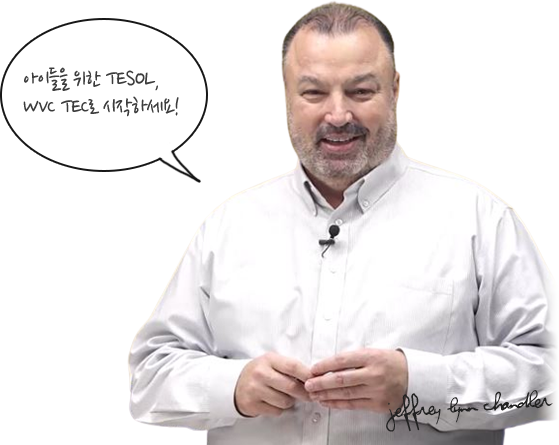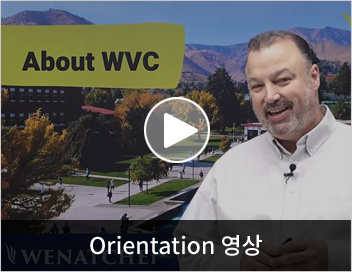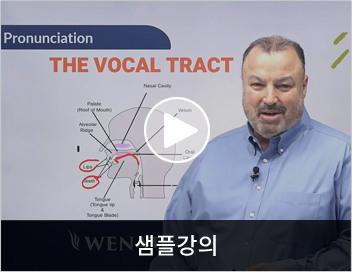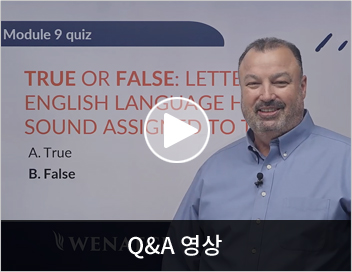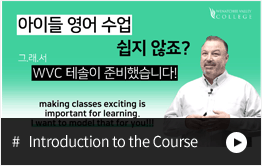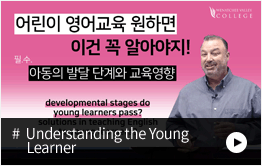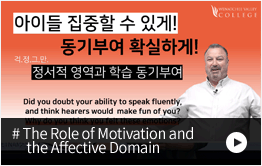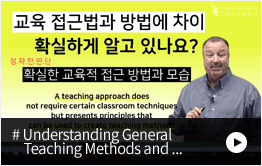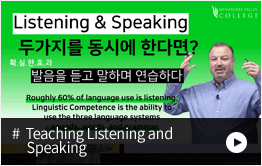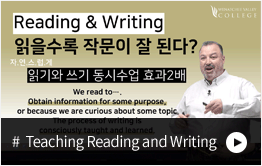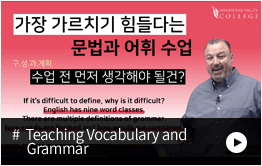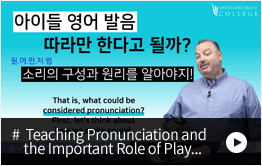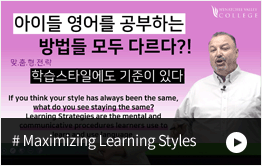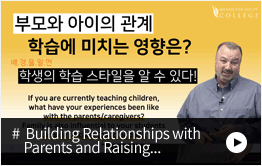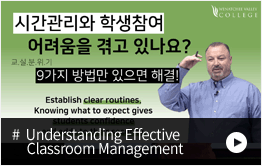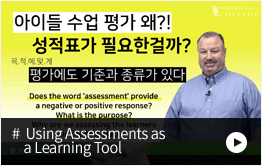| 어린이 영어 교육이란? |
Module1
Introduction to the Course |
Intro |
 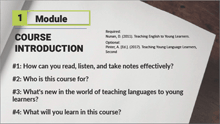
  |
1. How can you read, listen, and take notes effectively?
2. Who is this course for? |
3. What's new with teaching languages to young learners(TEYL)?
4. What will you learn in this course? |
| Summary, Q&A |
| 아동 발달 및 심리와 교육 영향 |
Module2
Understanding the Young Learner |
Intro |
 
  |
1. How are “young learners” defined?
2. Through what developmental stages do young learners pass? |
3. What are the implications of these developmental stages on instruction?
4. What are the main challenges and solutions in teaching English to young learners? |
| Summary, Q&A |
| 습득과 학습의 차이 |
Module3
Understanding Language Acquisition and Its Implications for the Classroom |
Intro |
 
  |
1. How do humans learn their first language?
2. How is second language acquisition similar to and different from first language acquisition? |
3. How does age affect second language acquisition?
4. What is bilingualism? |
| Summary, Q&A |
| 동기부여 및 정서적 영향 |
Module4
The Role of Motivation and the Affective Domain |
Intro |
 
 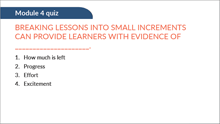 |
1. What is the affective domain?
2. How does it affect learning? |
3. What can teachers do to build and enhance motivation in young language learners?
4. How can teachers reduce learners’ anxiety in the language classroom? |
| Summary, Q&A |
| 교육 이론 및 접근 방식 |
Module5
Understanding General Teaching Methods and Approaches |
Intro |
 
  |
| 1. What methods are best suited for language instruction, and why? |
2. What teaching approaches are most effective for language learning, and what do they look like in the classroom?
3. What are the characteristics of high-quality curricula and teaching practices for young learners? |
| Summary, Q&A |
| 듣기와 말하기 교육 |
Module6
Teaching Listening and Speaking |
Intro |
 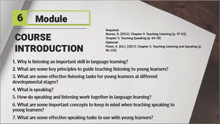
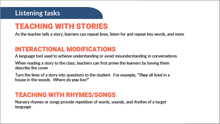  |
1. Why is listening an important skill in language learning?
2. What are some key principles to guide teaching listening to young learners?
3. What are some effective listening tasks for young learners at different developmental stages? |
4. What is speaking?
5. How do speaking and listening work together in language learning?
6. What are some important concepts to keep in mind when teaching speaking to young learners?
7. What are some effective speaking tasks to use with young learners? |
| Summary, Q&A |
| 읽기와 쓰기 교육 |
Module7
Teaching Reading and Writing |
Intro |
 
  |
1. What is reading and why do we read?
2. What is important to consider when planning to teach reading to young learners?
3. What are some effective reading tasks to use with young language learners? |
4. What is writing and why do we write?
5. How does learning to write in the new language benefit a learner’s second language acquisition?
6. What types of writing tasks are most effective with young language learners? |
| Summary, Q&A |
| 어휘와 문법 교육 |
Module8
Teaching Vocabulary and Grammar |
Intro |
 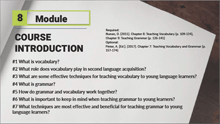
  |
1. What is vocabulary?
2. What role does vocabulary play in second language acquisition?
3. What are some effective techniques for teaching vocabulary to young language learners? |
4. What is grammar?
5. How do grammar and vocabulary work together?
6. What is important to keep in mind when teaching grammar to young learners?
7. What techniques are most effective and beneficial for teaching grammar to young language learners? |
| Summary, Q&A |
| 발음과 놀이 교육 |
Module9
Teaching Pronunciation and the Important Role of Play in Learning |
Intro |
 
  |
1. What is pronunciation?
2. What is important to consider about teaching pronunciation to young second language learners?
3. What are some useful techniques for teaching pronunciation to young language learners? |
4. What role does play have in children’s learning experiences and development?
5. How can it benefit students to incorporate elements of play into every lesson?
6. How can play be incorporated effectively into the language classroom of young learners? |
| Summary, Q&A |
| 학습 스타일과 전략 |
Module10
Maximizing Learning Styles |
Intro |
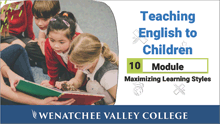 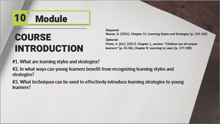
  |
| 1. What are learning styles and strategies? |
2. In what ways can young learners benefit from recognizing learning styles and strategies?
3. What techniques can be used to effectively introduce learning strategies to young learners? |
| Summary, Q&A |
| 홈스쿨링 |
Module11
Building Relationships with Parents and Raising Intercultural Awareness |
Intro |
 
  |
1. How do parents influence young learners?
2. What role can parents play in the second language acquisition of a young learner?
3. How can teachers build effective partnerships with parents of young learners? |
4. What is intercultural awareness?
5. How does language learning offer opportunities to raise intercultural awareness?
6. How does intercultural awareness benefit children? |
| Summary, Q&A |
| 교실 관리 |
Module12
Understanding Effective Classroom Management |
Intro |
 
  |
| 1. How can teachers create a positive classroom atmosphere? |
2. What is classroom management and what impact does it have on learning?
3. What are some important elements of effective classroom management? |
| Summary, Q&A |
| 교구 활용 및 학습계획 |
Module13
Using Resources and Technology in Language Learning and Planning Effective Lessons |
Intro |
 
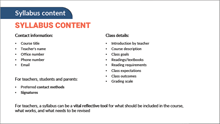  |
1. What is a syllabus and what should it accomplish?
2. What are the benefits and limitations of using commercial language texts?
3. How can language teachers use commercial texts effectively? |
4. How can visuals, realia, and authentic texts benefit language learning?
5. How can technology and computer-assisted language learning benefit learners?
6. How can language teachers make their own high-quality materials for their language classroom?
7. What are the principles of effective lesson planning? |
| Summary, Q&A |
| 평가 및 피드백 |
Module14
Using Assessments as a Learning Tool |
Intro |
 
  |
1. What is assessment?
2. What role does assessment play in learning?
3. How can teachers use assessment effectively?
4. How can students use assessment to improve their own learning? |
5. What types of assessments are the most child-friendly?
6. What is evaluation?
7. What is the relationship between assessment and evaluation?
8. How can a teacher use assessments and evaluation to improve their practice and better meet the learning needs of the student?
9. What have we covered in this course and next steps? |
| Summary, Q&A |
